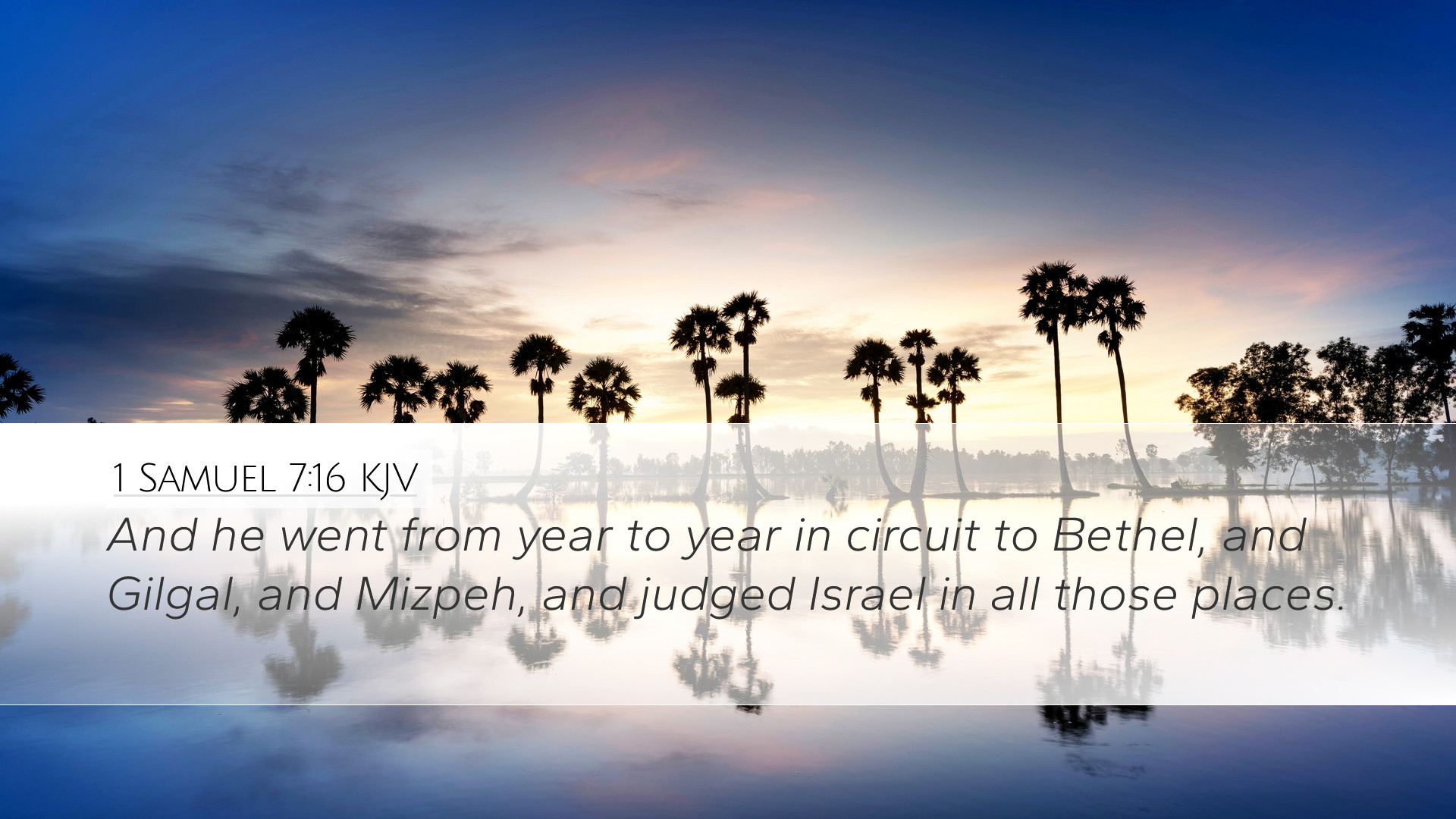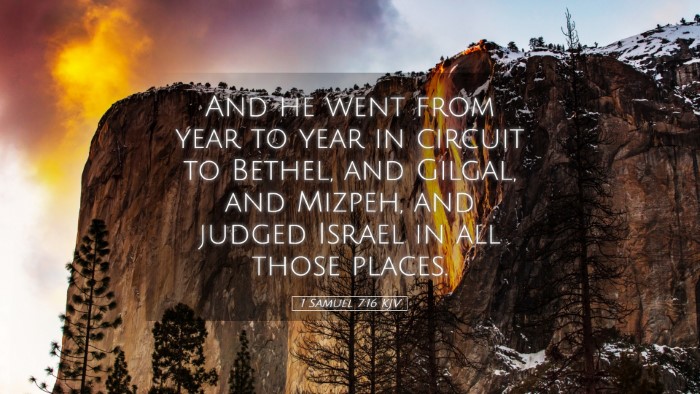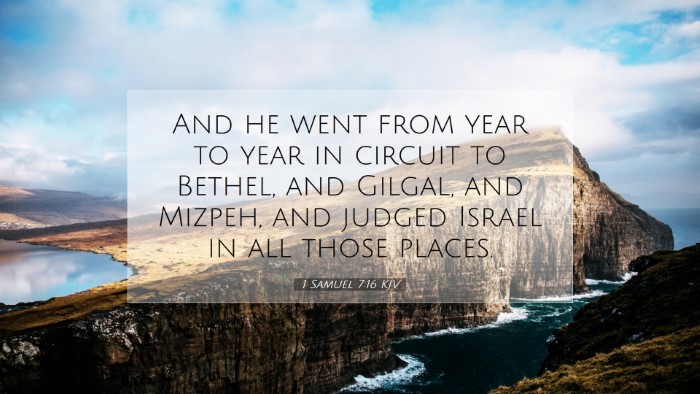Verse Context: 1 Samuel 7:16 states, "And he went from year to year in circuit to Bethel, and Gilgal, and Mizpeh, and judged Israel in all those places."
Introduction
This verse highlights a significant aspect of the leadership of Samuel as he served as a judge over Israel. His annual circuits to important cities underscored not only his role as a spiritual leader but also as a unifying figure for the nation. This commentary synthesizes insights from public domain sources including Matthew Henry, Albert Barnes, and Adam Clarke, illuminating the theological and practical implications of Samuel's leadership.
Analysis of the Text
The key components of 1 Samuel 7:16 can be broken down into three main themes: Samuel’s mobility and accessibility, the significance of the cities mentioned, and the spiritual authority exercised through his judgment.
1. Samuel’s Mobility and Accessibility
Samuel's practice of traveling to various cities such as Bethel, Gilgal, and Mizpeh reveals his commitment to being accessible to the people of Israel. Matthew Henry emphasizes that this approach not only allowed Samuel to fulfill his judicial responsibilities but also bolstered his role as a spiritual leader. His movement among the people exemplified a shepherd’s lifestyle, where direct engagement with the community was paramount.
Meaning for Today’s Leaders
This aspect of Samuel's leadership serves as a reminder for today’s pastors and church leaders regarding the importance of presence among their congregations. Leaders are called to be accessible and engaged, understanding the personal and communal struggles their congregants face.
2. Significance of the Cities
- Bethel: Known as "the House of God," Bethel had immense religious significance. Samuel's visit underscored the need for spiritual renewal in places dedicated to worship.
- Gilgal: As a historical site where Israel first camped after crossing the Jordan, Gilgal represented a new beginning. Samuel’s role here reminded the Israelites of their covenant identity.
- Mizpeh: This site served as a strategic gathering point and a place of prayer and repentance. By judging in Mizpeh, Samuel highlighted the importance of communal repentance and seeking God’s guidance.
Theological Implications
Albert Barnes points out that these locations were pivotal in Israel’s history and faith journey. Samuel's presence in such sites not only facilitated judgment but also encouraged the people's connection to their divine heritage.
3. Spiritual Authority and Judgment
Samuel's role as a judge was deeply tied to his spiritual authority. Adam Clarke notes that his judgment was not merely administrative but was underscored by a prophetic mandate. Samuel’s judgments were informed by a sensitivity to God’s will, which he communicated to the people.
Contemporary Application
This emphasizes to modern leaders the necessity of grounding their decisions in scriptural truth and divine guidance. True judgment in leadership integrates both wisdom and a commitment to righteousness, reflecting the character of God in every decision-making process.
Conclusion
1 Samuel 7:16 serves as a model of effective and godly leadership. Through Samuel's annual circuits, we learn about the importance of accessibility, the significance of communal and historical milestones in faith, and the foundational nature of godly judgment. Pastors, scholars, and theologians can draw from these insights to develop a deeper understanding of leadership that aligns with biblical principles, fostering a vibrant and engaged community that seeks God’s will above all.
In summary, Samuel’s example provides a framework for spiritual leadership that is both dynamic and anchored in faith, emphasizing the importance of relational engagement, historical consciousness, and the pursuit of divine wisdom in judgment.


